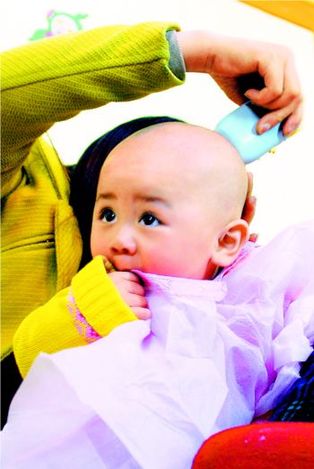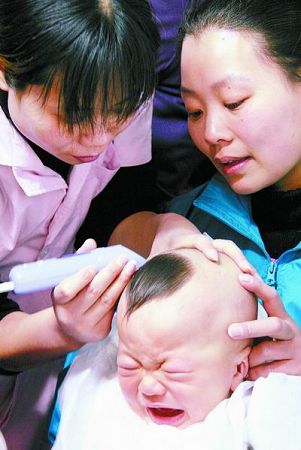Making the cut for dragon's day
Hair salons get ready for peak in customers
As the legendary dragon prepares to raise its head, Beijing hair salons are being bombarded with bookings by citizens searching for good luck.
 |
Thousands will hit the barbers' chair next Sunday to celebrate Longtaitou - the second day of the second lunar month - as it is a traditional day for Chinese to get haircuts.
"Like in previous years, we'll open as early as 7 am, while business will continue until midnight," said Li Minghui at the Di'anmen branch of Jinbancun (Golden Shaved Head), which is a famous brand known for adroit, stylish cuts for men. "In 2010, with five barbers working simultaneously, we had about 300 customers on that lucky day. This year, there's already a 30-percent increase in the number of bookings, with 400 so far."
To cope with demand, the salon will have one extra barber working, she said, adding: "We won't let our eager customers down. There are people who line up outside before 6 am."
Li Yonghe, 63, who has been visiting Jinbancun for years, said he believes having a haircut on March 6 will bring him luck in the new year.
 |
Silian Hair Salon in Wangfujing will also extend its opening hours by two hours, as well as add more barbers. "We don't have a booking service, so customers just come through the door and wait," said deputy general manager Zhu Xingyu. "There'll be about 30 barbers on duty, at least five more than usual." On average, the shop handles 350 men and 500 women on Longtaitou, and Zhu said he believes this year will be even busier as it falls on a Sunday when most people are off work.
"We have a relatively fixed customer base of elderly and middle-aged people who stick with tradition, but we've noticed that more and more young people are taking up the habit due to their parents' and grandparents' influence," Zhu added.
Newly established chains are also witnessing a boost in customers. A receptionist at Wen Feng Salon in the city's Anhui area told METRO that the business usually receives up to 300 customers for the special occasion, double the number on a normal day.
"From the amount of customers, I'd say this Chinese tradition is still going strong," added the receptionist, who did not want to be identified.
Legend has it that in ancient times a merciful dragon helped out villagers after hearing them pray for rain. However, as the dragon failed to get permission from the "god of heaven" he was imprisoned under a mountain.
Since then, once a year the dragon raises its head to see the world. As a mark of respect and to earn good luck, Chinese do not cut their hair until Longtaitou.
"The tradition is still popular among Beijingers," said Wang Zuoji, deputy director of Beijing Folklore Committee. "No matter how times change, people's wish for a happy life and good luck stays the same."
The fact that having a haircut during the first lunar month is seen as inauspicious - people believe if they do their uncle may die - will also contribute to the March 6 rush.
Apart from going for a trim, the Chinese have plenty of activities for that day that are romantically associated with dragon, such as eating noodles, which are referred to that day as "the dragon's beard". Women should also avoid needlework in case they stab the "dragon's eye".
















